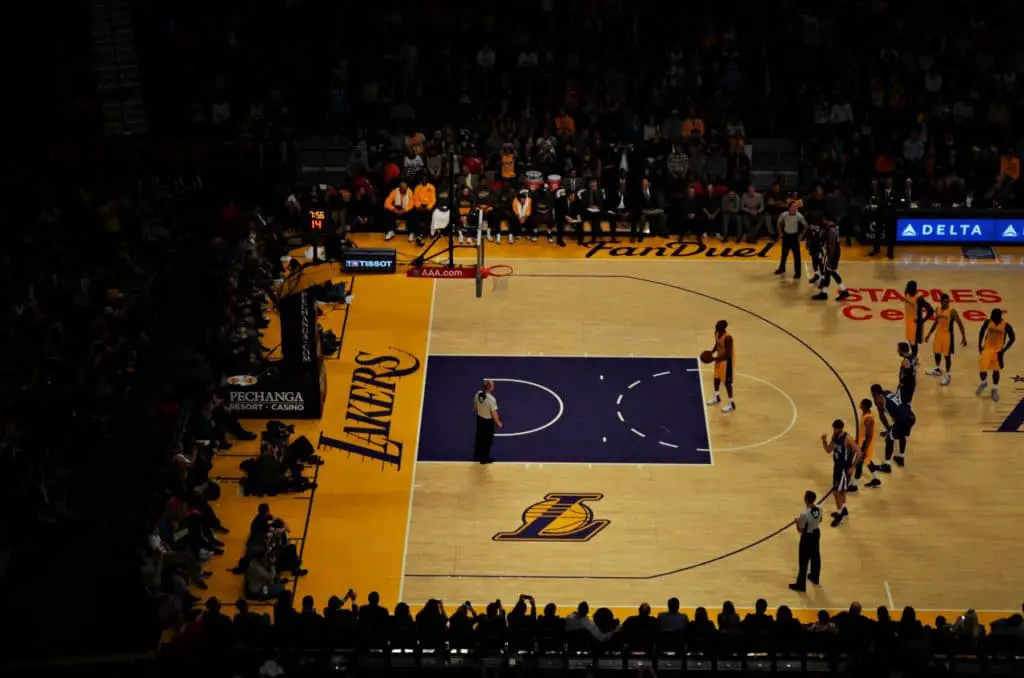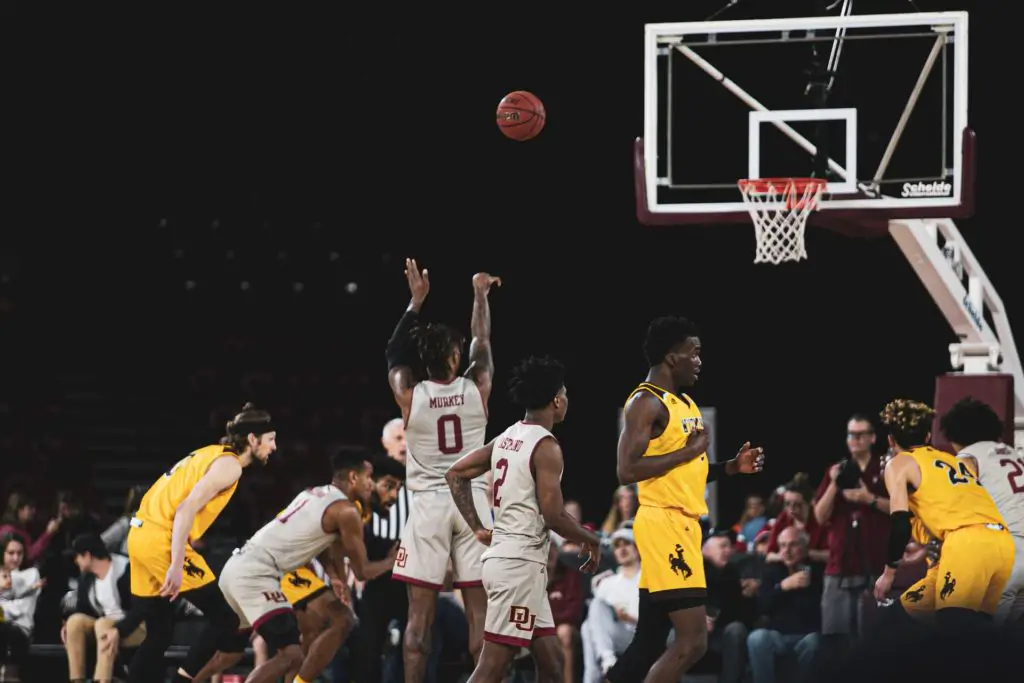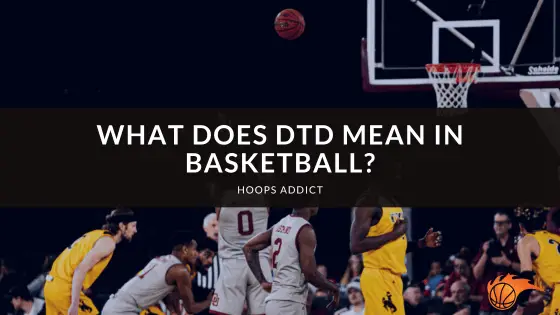If you play officiated basketball games, or if you watch basketball on television, you will hear the term ‘bonus’ quite often. Some of us may not be entirely clear on what this term means. It may be a bit confusing when we hear the term bonus being used in games, and we don’t know what it means.
No one likes to watch, play or listen to basketball while not knowing exactly what is going on. In this article, we are going to be taking a closer look at the term bonus, so that you can get a better understanding of what it is all about.
Bonus at different levels of basketball will have a different meaning, so it can be especially tricky to figure out what officials are saying when they use the term. Do not worry. This will be a comprehensive guide for the term ‘bonus’ in basketball games. After reading this article, you will be able to understand the term entirely, and you will be able to explain it to your friends and family who do not understand it.
 What Do No Fouls to Give Mean?
What Do No Fouls to Give Mean?
The term no foul to give, refers to bonus in basketball. So, what does bonus mean in basketball? The term bonus is commonly used in the sport of basketball by referees, table officials and coaches. Sometimes we even hear our captains advising us of bonus situations.
What does no fouls to give or bonus mean in basketball? This term is used to refer to when a team is at a particular limit. This is a limit determined by the number of fouls the team is allowed to rack up before the opposing team is rewarded free throws when they commit non-shooting fouls.
In normal gameplay, whenever a player commits a non-shooting foul, the ball is typically inbounded from the sidelines closest to where the foul is committed. When a team has no fouls to give, the situation is different. If a team has no fouls to give, this means they cannot commit a personal foul without the next team being awarded free throws.
 What’s the Difference Between Bonus and Double Bonus in Basketball?
What’s the Difference Between Bonus and Double Bonus in Basketball?
If you are not familiar with high school and college basketball, you may have never heard the term ‘double bonus’ before. Double bonus is not currently used in the NBA and international competitions.
Let’s take a look at the differences between double bonus and bonus in basketball. The easiest of the two to remember may be bonus. A bonus situation occurs when a team commits fouls that are over the number of team fouls allotted without a penalty.
Bonus at different levels of basketball will be treated differently. At the high school and college levels, when a team gets in the bonus, one free-throw is awarded per non-shooting foul. If the free throw is made, another free-throw is awarded. This free-throw procedure is known as one-and-one.
At the professional level, each foul after a team enters the bonus is rewarded with two free throws instead of one. Now let’s take a look at double bonus. At the amateur level, when double bonus happens, the team is guaranteed two free throws instead of one-and-one. Double bonus occurs when a team has accumulated ten fouls in a half.
 The Definition of Bonus at Different Levels of Play:
The Definition of Bonus at Different Levels of Play:
The fundamentals of basketball may be the same, but the rules will differ based on the level the game is being played at. Some rules are put in place to accommodate for the ages of the players and their development.
It is important for players, coaches and all other stakeholders to understand the differences in the rules of the game as they transition from each level. Let’s now take a look at some of the differences in the bonus rules for different levels of basketball.
Bonus in Youth Basketball / AAU
The Amateur Athletic Union (AAU) is a youth sports organization. For basketball, the AAU allows players to participate in the independent teams against other teams in AAU tournaments. In AAU competitions, boys can compete in the seven and under division up to the nineteen and under division. Girls can also compete starting from the second grade up to the nineteen and under division as well.
So, what does bonus mean in youth basketball or in the AAU? In AAU basketball, a team is considered to be in the bonus when they have committed ten fouls in a half. The opposing team will be allotted one free-throw, and if they make the free-throw, they are then awarded another. This will continue up to the twelfth foul. After the twelfth foul, other fouls will be treated as a double bonus.
Bonus in High School Hoops
In high school basketball, teams are considered to be in the bonus after the seventh foul is committed in a half. The one-and-one format will apply to free throws that are taken as a result of the bonus. A player will take a free throw, and if he makes said free-throw, he will be allowed to take another. However, if he misses the first free throw, the ball will be considered live, and play will continue after the rebound is caught.
Bonus will continue up to the tenth foul. When the 10th foul is committed, the team will be considered to be in a double bonus, and double bonus rules will apply.
Bonus in NCAA Basketball
NCAA basketball bonus rules and high school basketball bonus rules are pretty much the same. For a team to be in the bonus in NCAA basketball, the team has to commit over six fouls in a half. For all fouls that follow, up to the ninth foul, the team is in the bonus. For the seventh, eighth and ninth foul, the opposing team will shoot one free throw, and if they make it, they will be allowed to shoot another.
Double bonus will kick in after the tenth foul is committed. The one thing different between NCAA and high school basketball leagues is that for women NCAA games, the team is considered to be in the bonus after the 4th foul in each quarter. This means that form foul number five onwards, the team will be shooting free throws for each foul committed that are not offensive fouls.
Offensive fouls are not counted towards team fouls in NCAA basketball. This goes for both women and men.
Bonus in the NBA
In the NBA, there is no double bonus. Only bonus is used, but a team is allowed two free throws after the bonus is applied. In each quarter, a team is allowed for team files without free throws, however, upon the fifth foul, two free throws will be awarded. This will continue for every other foul accumulated in the quarter.
In the NBA, the bonus rule will also apply after the second foul committed in the last 2 minutes of each quarter if the team has not yet reached the limit for the bonus. A team will also get in the bonus after the third foul is committed in extra time. This means two free throws will be awarded when the fourth foul is committed.
Bonus in FIBA International Play
After four team fouls are accumulated in a quarter while playing a FIBA regulated game, the team will be considered to be in the bonus. Two free throws will be allotted to the team that receives the fifth foul.
In FIBA gameplay, team fouls are all personal fouls acquired by players. Fouls committed in overtime are considered to have been committed in the fourth quarter, so the foul counter will not be reset at the start of the overtime period.
 Why is it Important to Know if You’re in the Bonus?
Why is it Important to Know if You’re in the Bonus?
Throughout the course of a basketball game, it is important to know the number of team fouls that your team has accumulated at any point. Team fouls are used to determine if a team is in the bonus.
It is also very important for each player and the coach to know the number of fouls that a team can accumulate before being placed in the bonus. Because the bonus will allow the opposing team to shoot one or two free throws depending on the competition, players and coaches at certain times in the game will want to stay away from the bonus to prevent this.
On the flip side, some situations may occur in a game where it is best if the team is in the bonus so that they can stop the clock and put pressure on their opponents by sending them to the free-throw line. If a player does not know that his/her team is in or will enter the bonus on the next personal foul, he/she may commit a silly foul that could give the opposing team an advantage.
 How Does Being In or Not in the Bonus Impact Basketball Strategy?
How Does Being In or Not in the Bonus Impact Basketball Strategy?
The bonus is a handy tool that coaches can use depending on the game situation. Strategies can be devised based on whether or not a team is in the bonus to help a team come back into a game or maintain a lead.
In the fourth quarter, a team that is not yet in the bonus, but is trailing can use the available team fouls to slow down the opponent’s offense and try to get a steal on the inbound pass. Additionally, using the available team fouls will put the team in the bonus so that they can foul poor free throw shooters of the opposing team. The team can then try to grab the rebound and regain possession of the ball.
A team that is in the bonus may not be able to aggressively play defense as it would want due to the fear that they may send the opposing team to the free-throw line. With this in mind, you may find teams that are close to the bonus, trying to avoid it by not fouling.
Teams can also try to put their opponents in the bonus by attacking the rim aggressively to draw fouls. Coaches will instruct their players to do this so that they can put the game away at the free-throw line. To implement this strategy successfully, players will attack the rim on almost every possession to draw contact.
When enough of these fouls amass, the opponent will be in the bonus, and they will have to be very careful with how aggressively they are on defense. If they are overly aggressive on defense and commit fouls, the next team will have an opportunity to close them out of the game by shooting free throws for the rest of the way.
Wrapping Things Up: Key Takeaways
Now that we understand what bonus in basketball is, we can correctly say that the bonus system will differ based on the type of competition being played. Even though the requirements for a team to enter the bonus is different, strategies that are related to the bonus are pretty much the same.
Both players and coaches need to realize when a team is going to be in the bonus so that they can adjust the way they play accordingly. Until next time ballers, get them in the bonus and make the free throws.
If you enjoyed this post, you’ll like our other basketball FAQ articles here.
> What is a Field Goal in Basketball?

 What Do No Fouls to Give Mean?
What Do No Fouls to Give Mean? What’s the Difference Between Bonus and Double Bonus in Basketball?
What’s the Difference Between Bonus and Double Bonus in Basketball?
 The Definition of Bonus at Different Levels of Play:
The Definition of Bonus at Different Levels of Play:
 Why is it Important to Know if You’re in the Bonus?
Why is it Important to Know if You’re in the Bonus? How Does Being In or Not in the Bonus Impact Basketball Strategy?
How Does Being In or Not in the Bonus Impact Basketball Strategy? 


